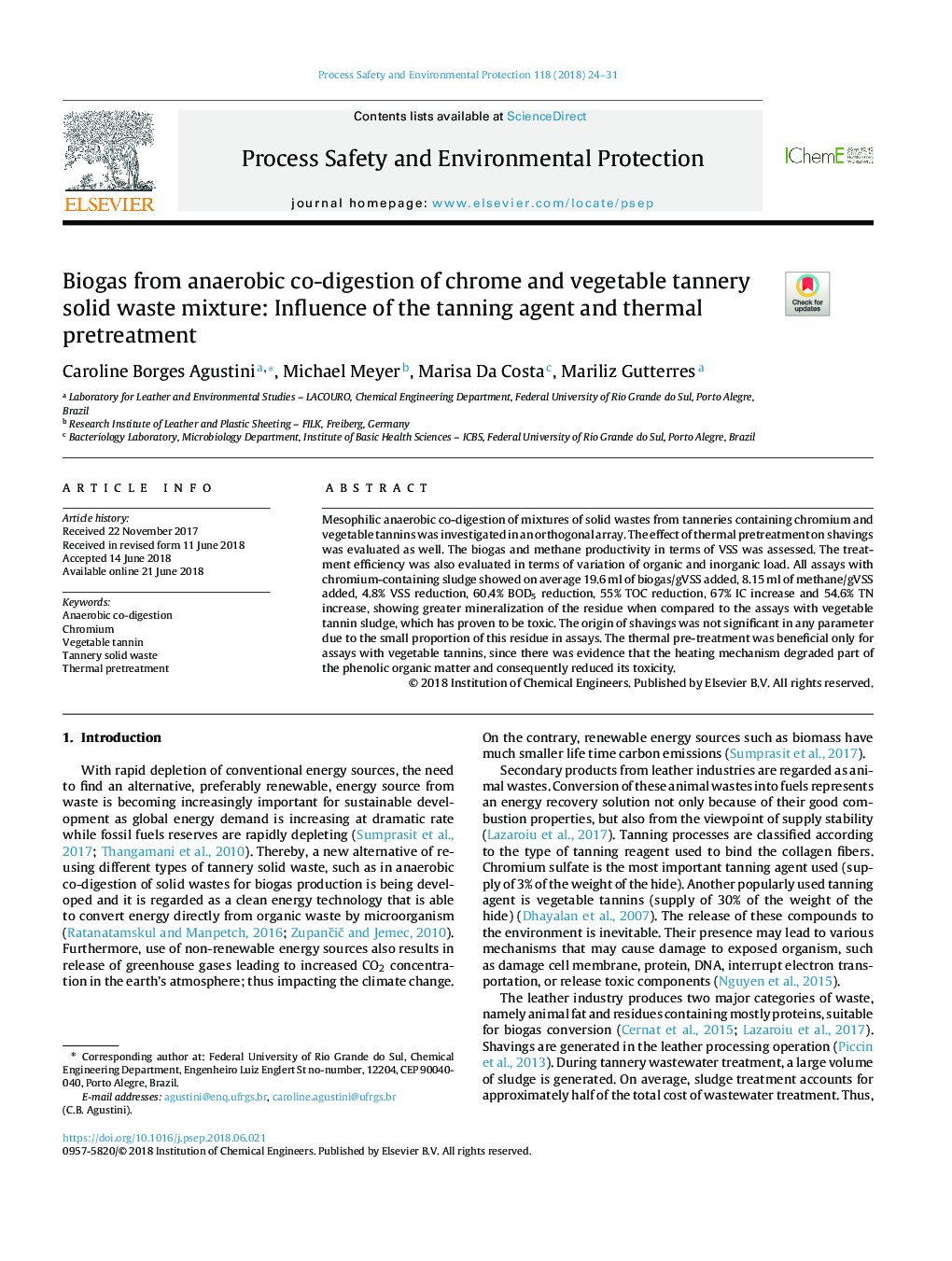| Article ID | Journal | Published Year | Pages | File Type |
|---|---|---|---|---|
| 6973853 | Process Safety and Environmental Protection | 2018 | 8 Pages |
Abstract
Mesophilic anaerobic co-digestion of mixtures of solid wastes from tanneries containing chromium and vegetable tannins was investigated in an orthogonal array. The effect of thermal pretreatment on shavings was evaluated as well. The biogas and methane productivity in terms of VSS was assessed. The treatment efficiency was also evaluated in terms of variation of organic and inorganic load. All assays with chromium-containing sludge showed on average 19.6Â ml of biogas/gVSS added, 8.15Â ml of methane/gVSS added, 4.8% VSS reduction, 60.4% BOD5 reduction, 55% TOC reduction, 67% IC increase and 54.6% TN increase, showing greater mineralization of the residue when compared to the assays with vegetable tannin sludge, which has proven to be toxic. The origin of shavings was not significant in any parameter due to the small proportion of this residue in assays. The thermal pre-treatment was beneficial only for assays with vegetable tannins, since there was evidence that the heating mechanism degraded part of the phenolic organic matter and consequently reduced its toxicity.
Related Topics
Physical Sciences and Engineering
Chemical Engineering
Chemical Health and Safety
Authors
Caroline Borges Agustini, Michael Meyer, Marisa Da Costa, Mariliz Gutterres,
